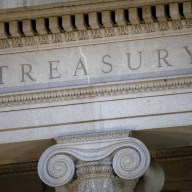TAOYUAN, Taiwan – The Dalai Lama denied any political agenda as he began what he described as a “purely humanitarian” mission Sunday to comfort victims of Taiwan’s worst storm, trying to calm fears that he would further anger China by verging into politics.
Although the Tibetan spiritual leader has travelled to Taiwan before, many fear his arrival could hurt the island’s improving relations with rival China – the signature issue in the 15-month-old administration of Taiwanese President Ma Ying-jeou. China has protested the visit.
The Dalai Lama, who clasped his hands and smiled as he greeted Buddhist followers and supporters at the Taoyuan International Airport near Taipei, said his visit would have no political overtone.
“I’ve visited different parts of the world, and I may have a political agenda there … (but) my visit here is purely for humanitarian concerns,” he said.
His arrival at a suburban Taipei train station was greeted by about 50 demonstrators waving Chinese flags and banners supporting unification with China and shouting “Go home Dalai Lama, don’t come here.” The demonstrators briefly scuffled with police.
“I’m here to oppose the Dalai Lama’s visit,” 62-year-old protester Feng Tsai-chiao said. “I want unification with China so I don’t like him.”
China has long vilified the Dalai Lama for what it says are his attempts to fight for independence in Tibet. Beijing has said it “resolutely opposes” the Taiwan visit “in whatever form and capacity.”
Wu Poh-hsiung, the chairman of Ma’s Nationalist Party, said earlier Sunday that his party has sought Beijing’s understanding of the visit, but he did not give details or say whether China responded.
“We believe the Dalai Lama will have the wisdom to distinguish between religious empathy and political manoeuvring,” Wu told reporters.
Ma has said he approved the Dalai Lama’s visit but will not meet him.
Before his departure, the Dalai Lama said he did not think his visit to Taiwan would cause tension between China and Taiwan.
“Broadly speaking, I don’t think that is so,” he told reporters in India, adding that he has a “very strict nonpolitical nature.”
Taiwan’s opposition invited the Dalai Lama to comfort the victims of Typhoon Morakot, which hit the island in early August and left an estimated 670 dead. During his five-day visit, he is to visit a village hit hard by the storm, lead a mass prayer ritual and address the island’s Buddhist followers.
“There are many Buddhists there. So since they asked me, it is my moral responsibility, to accept, to go there,” the Tibetan spiritual leader said.
China has blamed Taiwan’s opposition, not Ma, for the invitation, in what appeared to be an effort to keep the improving relations on track. China and Taiwan split amid civil war in 1949, and China’s leaders want the self-governing island back.
The invitation put Ma in a bind – either risk angering China or give further ammunition to his detractors, who were already reveling over widespread perceptions that Ma’s government had badly botched typhoon relief efforts.
Many members of Ma’s party saw the invitation as an effort by the rival Democratic Progressive Party to embarrass the president.
Legislative speaker Wang Jin-pyng said he hoped the Dalai Lama would not make political statements that would “change the tune of what’s supposed to be a religious trip.”














